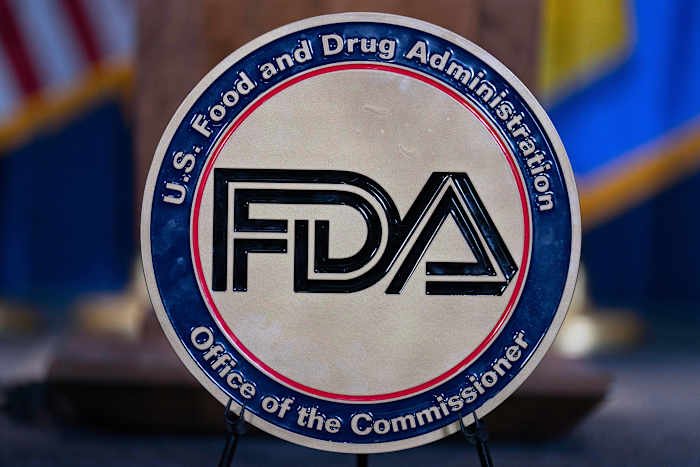Orlando, FL — In a move that has sent shockwaves through the biotech industry and local Orlando healthcare communities, Sarepta Therapeutics has announced a pause in shipments of its groundbreaking gene therapy for muscular dystrophy. The decision comes after several patient deaths, prompting federal regulators to step in and demand further scrutiny. As Sarepta’s stock continues to tumble, families and healthcare providers in Orlando are left wondering what this means for those relying on cutting-edge treatments. Here’s what you need to know about the unfolding situation, its implications for our city, and what comes next.
Background: Sarepta’s Gene Therapy and Patient Impact
Sarepta Therapeutics has been at the forefront of developing innovative treatments for Duchenne muscular dystrophy (DMD), a rare but devastating genetic disorder that primarily affects young boys. Their gene therapy, marketed as Elevidys, offers hope to patients and families facing a disease with few effective options. The therapy works by delivering a functioning copy of a crucial muscle protein gene, aiming to slow the progression of muscle weakness.
For many in Orlando and across the nation, Sarepta’s therapy has represented a beacon of hope. Nemours Children’s Hospital and other local facilities have participated in clinical trials and administered the treatment to eligible patients. With DMD affecting an estimated 1 in 3,500 to 5,000 male births globally, breakthroughs like Elevidys have been closely watched by Orlando’s medical community and families alike.
FDA Steps In: The Pause Explained
The recent pause in gene therapy shipments comes after reports of several patient deaths, which have triggered an investigation by the U.S. Food and Drug Administration (FDA). Though the exact causes remain under investigation, the FDA has asked Sarepta to halt distribution until further safety data can be reviewed and protocols adjusted if necessary.
This move is not only a blow to Sarepta’s financial outlook — with shares dropping sharply on the news — but also a source of anxiety for Orlando families currently undergoing or awaiting treatment. Healthcare providers in Central Florida have had to pause new infusions, and families are left in limbo, uncertain about the future of their children’s care.
Local Orlando Impact: Hospitals and Families React
Orlando is home to several top-tier children’s hospitals and research centers that have been active participants in DMD research and treatment. The pause in gene therapy shipments directly affects both ongoing clinical trials and standard patient care.
- Nemours Children’s Hospital and Orlando Health Arnold Palmer Hospital for Children have both released statements expressing their commitment to patient safety and ongoing communication with the FDA and Sarepta.
- Several Orlando-based families, who have shared their DMD journeys publicly, have voiced concern and frustration on social media, highlighting the uncertainty and emotional toll of the pause.
- Local advocacy groups, such as the Central Florida Muscular Dystrophy Association, are working to support affected families and provide up-to-date information as the situation evolves.
For many in Orlando, the halt is a reminder of the inherent risks and challenges that come with pioneering new medical treatments, and underscores the importance of rigorous safety oversight.
What’s Next for Sarepta and the Future of Gene Therapy?
Sarepta Therapeutics has pledged to cooperate fully with the FDA and to provide all requested data regarding the adverse events. In a statement, the company reaffirmed its commitment to patient safety and expressed optimism that, with appropriate safeguards and further review, shipments could resume in the future.
For Orlando, the pause represents both a setback and an opportunity. Researchers at the University of Central Florida and local hospitals are already engaged in collaborative efforts to develop safer therapies and improve patient monitoring. The incident also highlights the need for robust patient registries and real-time data sharing, both of which are priorities for Orlando’s medical research community.
Meanwhile, families and clinicians are hoping for swift and transparent communication from Sarepta and the FDA, as well as support for those whose treatment plans have been disrupted.
Investor Reaction and Broader Biotech Implications
The financial markets reacted swiftly to Sarepta’s announcement, with shares sliding by double digits. Investors are concerned not only about the immediate impact on Sarepta’s revenue, but also about the potential ripple effects in the broader gene therapy sector. Companies developing similar treatments for rare diseases are likely to face increased regulatory scrutiny, which could slow the pace of innovation but ultimately improve patient safety.
In Orlando, where biotech investment and clinical research are growing economic drivers, this story serves as a case study in the volatility and promise of the life sciences industry. Local investors and entrepreneurs are watching closely to see how Sarepta and the FDA navigate the path forward, and what lessons can be applied to other emerging therapies being developed in Central Florida.
Conclusion: A Turning Point for Medicine in Orlando and Beyond
The pause in Sarepta’s gene therapy shipments marks a critical juncture for families living with muscular dystrophy, as well as for the broader medical and biotech communities in Orlando. While the situation is fluid and understandably concerning, it also underscores the importance of balancing medical innovation with the highest standards of patient safety.
As Sarepta and the FDA work towards a resolution, Orlando’s hospitals, advocacy groups, and families are coming together to support one another and advocate for safe, effective treatments. The outcome of this investigation will shape the future of gene
















